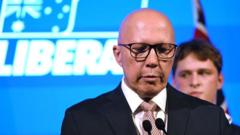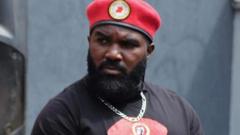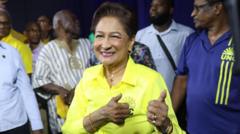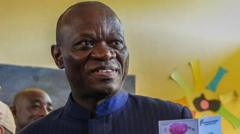The Togolese leader, Faure Gnassingbé, has been sworn in as "President of the Council of Ministers," a role that grants him unprecedented power and no official term limits. This inauguration follows a series of constitutional changes that have eliminated presidential elections, transitioning the country to a parliamentary system. Opponents decry this move as a strategy for Gnassingbé to solidify his grip on power indefinitely, continuing a family legacy that has dominated Togo for 58 years.
Togo's New Leadership Role Raises Concerns Over Lifelong Rule
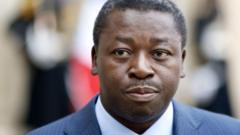
Togo's New Leadership Role Raises Concerns Over Lifelong Rule
Faure Gnassingbé's ascension to a new post without term limits has critics alarmed about the future of democracy in Togo.
Faure Gnassingbé took control in 2005 after the death of his father, Gnassingbé Eyadéma, who had ruled for 38 years. Critics labeled these constitutional alterations as an "institutional coup d'état." While the government temporarily stalled on some reforms due to public dissent, it has now implemented Gnassingbé’s new role. As Togo prepares for municipal elections in July, these will be the first conducted under the revised constitution, designed to reshape governance away from a presidential system.
In practical terms, the presidency has become an honorary position, yet analysts argue that Gnassingbé's authority is now more robust, further entrenched by this new council leadership. His party, the Union for the Republic, secured a commanding majority during last year’s parliamentary elections, winning 108 out of 113 seats in the National Assembly, paving the way for his ongoing influence in the nation's politics.
In practical terms, the presidency has become an honorary position, yet analysts argue that Gnassingbé's authority is now more robust, further entrenched by this new council leadership. His party, the Union for the Republic, secured a commanding majority during last year’s parliamentary elections, winning 108 out of 113 seats in the National Assembly, paving the way for his ongoing influence in the nation's politics.



